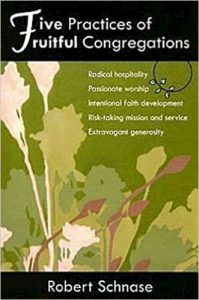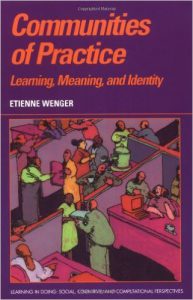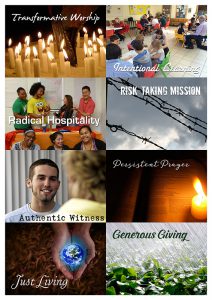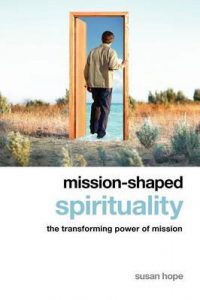 If Christian discipleship is somehow core to the praxis of being a Christian community, what does that look like? A lot has been written in recent years about faith practices by people such as Dorothy Bass, Craig Dykstra, Kenda Creasy Dean, Diana Butler Bass, and recently Robert Schnase. Schnase’s book Five Habits of Fruitful Congregations and its accompanying resources have been helpful for many Uniting Church congregations. Download PDF Practices of Faith.
If Christian discipleship is somehow core to the praxis of being a Christian community, what does that look like? A lot has been written in recent years about faith practices by people such as Dorothy Bass, Craig Dykstra, Kenda Creasy Dean, Diana Butler Bass, and recently Robert Schnase. Schnase’s book Five Habits of Fruitful Congregations and its accompanying resources have been helpful for many Uniting Church congregations. Download PDF Practices of Faith.
In the late 1990s, Dorothy Bass and Craig Dykstra each wrote books on the importance of Christian practices for educating Christians in discipleship. Bass’ work is part of an ongoing project at Valparaiso University (www.practicingourfaith.org). As the research director for the Lily Foundation, Dykstra went on to help shape the work undertaken by Diana Butler Bass. Dysktra’s work is grounded in Aladair MacIntyre’s notion of the nature of virtue and how we come to lead virtuous lives. The particular analogy is that learning to be a disciple is like learning to play baseball.
Dykstra claims that people today are hungry for a faith that makes a difference to the way we live. He suggests that we are yearning for a life of faith, not just a knowledge of faith. Discipleship is life in community, and it is as we live out faith in community that we experience the means of grace. So practices of faith are the arena of grace, where we both express our faith and grow in faith. What would it mean to be a church which defined itself not by our institutional structures, but by our communal faith practices?
 In his book, Communities of Practice, Etienne Wenger speaks about four components of learning a social participation:
In his book, Communities of Practice, Etienne Wenger speaks about four components of learning a social participation:
- Meaning – learning as experience
- Practice – learning as doing
- Community – learning as belonging
- Identity – learning as becoming
For Etienne Wenger, learning is central to human identity. A primary focus of Wenger’s work is on learning as social participation – the individual as an active participant in the practices of social communities, and in the construction of his/her identity through these communities. From this understanding develops the concept of the community of practice: a group of individuals participating in communal activity, and experiencing/continuously creating their shared identity through engaging in and contributing to the practices of their communities.
I am exploring a notion of praxis that connects and encompasses the above four dimensions.
Recently I’ve looked across a range of writings about faith practices and come up with a set of practices as a basis for discussion with church leaders about what lifelong discipleship looks like. The list is indebted to the above authors.
- Transformative Worship – life-changing encounter with God in community
- Intentional Learning – engaging deeply with Scripture, Christian beliefs and experience today
- Radical Hospitality – welcome, inclusion and caring community across barriers
- Risk-taking Mission – costly service to maintain and create peace, justice and well-being
- Generous Giving – grateful and open-hearted provision for others
- Just Living – responsibly caring for creation and community life
- Authentic Witness – respectfully sharing good news in presence and story
- Persistent Prayer – deepening spiritual disciplines individually and together
 I created another set of picture cards to use as a prompt for discussion.
I created another set of picture cards to use as a prompt for discussion.
With our Assembly Formation, Education and Discipleship Working Group, I led a conversation looking at these ‘core practices’ alongside ‘faith forming practices’ and a ‘spirituality of mission’.
So the first question was to ask, if the above are practices of discipleship, what more particular set of practices might be required to grow these. I offered the following as a basis for discussion, drawing on John Roberto’s Faith Formation 2020, the Exemplary Youth Ministry study, and the 10 Formational Pillars used by Here2Stay. Together with the first list they raise questions about what we mean by practices, and how a set of practices might constitute praxis.
- Interpreting the Bible
- Fostering prayer practices
- Nurturing faith in households
- Mentoring and modelling
- Building intergenerational relationships
- Celebrating rites of passage
- Learning through serving together
- Learning and sharing with peers
- Advocating and acting for justice
- Expressing creativity and imagination
- Sharing faith with others respectfully
- Gathering for retreats, camps and events
 We then put these alongside 10 aspects of spirituality for mission from Mission-Shaped Spirituality by Susan Hope in order to ask whether our notions of growing disciples were to inward-looking or domestic.
We then put these alongside 10 aspects of spirituality for mission from Mission-Shaped Spirituality by Susan Hope in order to ask whether our notions of growing disciples were to inward-looking or domestic.
- Calling and Sending – apostolic spirituality
- Living Trustingly – confidence in uncertainty
- Seeing – contemplation and context
- Taking nothing for the journey – travelling light
- Two by two – confidence in community
- Prayer, promise and struggle – dynamic dependence
- The message and the messengers – branded with the message
- Helping to heal the world’s woes – the character of assertiveness
- Learning, laughing and the long haul – persistence, returning, reporting
- An apostolic adventure – crossing boundaries, taking risks
Now while this might just seem like a whole lot of lists, the conversation was stimulating and challenging in terms of what we might invite churches and leaders to pay the most attention towards.
Here’s a PDF with the three lists. Faith Formation & Mission Practices
I’d be keen to hear of these are useful for you, and will post more on this as we develop a framework to assist congregations for focus on growing disciples for the sake of mission.
So what might we say about communities of learning about discipleship praxis?
They
- focus on discipleship as lifelong learning and growth
- build a shared vision for discipleship and mission
- foster a climate of shared, collaborative learning
- work explicitly on improving the relational environment for learning
- recognize individual gifts, learning needs and learning pathways
- value ‘on the job’ learning through tasks, relationships, praxis, conversations
- encourage questioning, problem-solving, assumption checking
- look around and ahead at their context and future to anticipate change
- expect and encourage modeling and mentoring
- see learning as informal and formal, both ‘everyday’ and intentional
- are led by lifelong learners
- are grounded in communal practices that reflect and shape their vision, mission and values
- value the learning resources within the community
- seek appropriate resources to enhance the community
- expect change and resist blame
- build learning into communal events
I could say heaps more but there’s a thesis in this stuff…
Leave a Reply